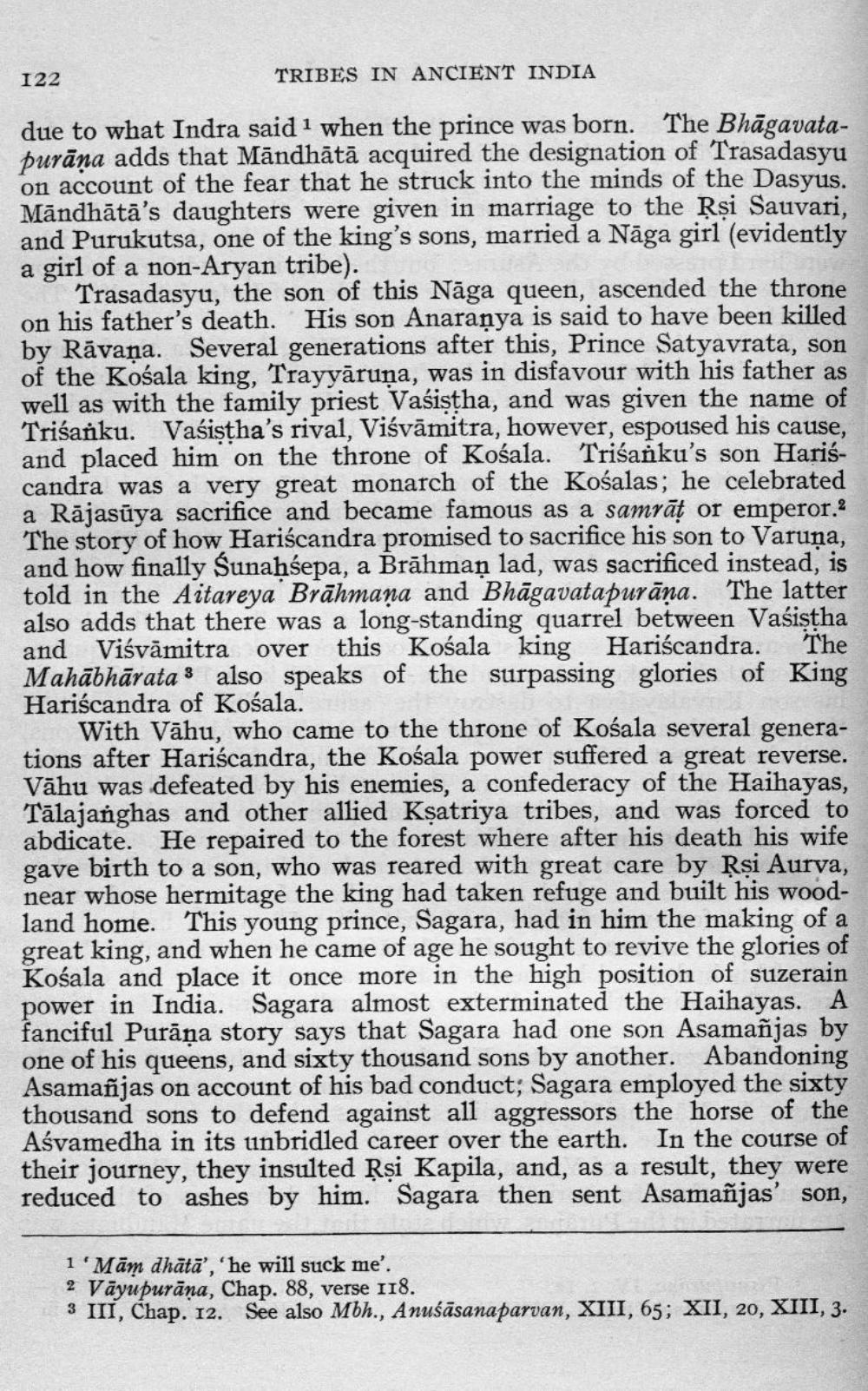________________
122
TRIBES IN ANCIENT INDIA
due to what Indra said 1 when the prince was born. The Bhāgavatapurāna adds that Māndhātā acquired the designation of Trasadasyu on account of the fear that he struck into the minds of the Dasyus. Māndhātā's daughters were given in marriage to the Rși Sauvari, and Purukutsa, one of the king's sons, married a Nāga girl (evidently a girl of a non-Aryan tribe).
Trasadasyu, the son of this Nāga queen, ascended the throne on his father's death. His son Anaraṇya is said to have been killed by Rāvaņa. Several generations after this, Prince Satyavrata, son of the Košala king, Trayyāruņa, was in disfavour with his father as well as with the family priest Vaśistha, and was given the name of Trišanku. Vašistha's rival, Viśvāmitra, however, espoused his cause, and placed him on the throne of Kośala. Trišanku's son Hariscandra was a very great monarch of the Kośalas; he celebrated a Rājasūya sacrifice and became famous as a samrāt or emperor.2 The story of how Hariscandra promised to sacrifice his son to Varuņa, and how finally Sunahsepa, a Brāhmaṇ lad, was sacrificed instead, is told in the Aitareya Brāhmana and Bhāgavatapurāna. The latter also adds that there was a long-standing quarrel between Vasistha and Viśvāmitra over this Kośala king Hariscandra. The Mahābhārata 3 also speaks of the surpassing glories of King Hariscandra of Kośala.
With Vāhu, who came to the throne of Kośala several generations after Hariscandra, the Kośala power suffered a great reverse. Vāhu was defeated by his enemies, a confederacy of the Haihayas, Tālajanghas and other allied Ksatriva tribes, and was forced to abdicate. He repaired to the forest where after his death his wife gave birth to a son, who was reared with great care by Rsi Aurva, near whose hermitage the king had taken refuge and built his woodland home. This young prince, Sagara, had in him the making of a great king, and when he came of age he sought to revive the glories of Kośala and place it once more in the high position of suzerain power in India. Sagara almost exterminated the Haihayas. A fanciful Purāna story says that Sagara had one son Asamañjas by one of his queens, and sixty thousand sons by another. Abandoning Asamañjas on account of his bad conduct; Sagara employed the sixty thousand sons to defend against all aggressors the horse of the Aśvamedha in its unbridled career over the earth. In the course of their journey, they insulted Rși Kapila, and, as a result, they were reduced to ashes by him. Sagara then sent Asamañjas' son,
1 'Mām dhātā', 'he will suck me'. 2 Vāyu purāna, Chap. 88, verse 118. 3 III, Chap. 12. See also Moh., Anušāsanaparvan, XIII, 65; XII, 20, XIII, 3.




